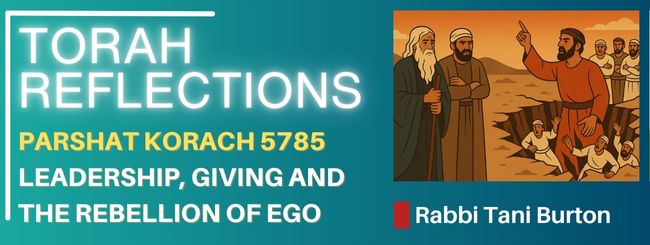בס”דI
Integrating Torah into one’s life through reflection and conversation can be an incredibly fun and engaging experience. It’s a journey of discovery, where ancient wisdom and timeless teachings come to life in our daily experiences. Through reflection, we have the opportunity to dive deep into the rich tapestry of Torah, extracting profound insights and lessons that resonate with our modern lives. The joy lies in the ‘aha’ moments, those instances when a Torah verse or story suddenly connects with our personal challenges, aspirations, and values. And when we engage in conversations about Torah with others, it becomes an interactive exploration, where diverse perspectives and interpretations enhance our understanding. These dialogues often spark excitement and intellectual curiosity, making the learning process both enjoyable and fulfilling. Torah becomes a vibrant and dynamic part of our lives, offering not just guidance but also a source of endless fascination, connection, and growth.
NOTE: Don’t feel obligated to go through every source or answer all the questions—unless you want to. Even one source, or one question will give you plenty of material for discussion and meditation. Enjoy this!
Some thoughts about Parshat Korach
This week’s Torah portion tells the story of Korach, a charismatic but dangerously misguided man who challenged the leadership of Moses and Aaron. His argument sounded noble: if everyone is created in G-d’s image and we all share a measure of sanctity, then why should anyone hold spiritual authority over others?
But the outcome of Korach’s rebellion was catastrophic. The ground opened beneath him and his followers, swallowing them whole. Why such a dramatic punishment? What made Korach’s challenge so dangerous?
The Illusion of Equality Without Responsibility
Korach’s mistake wasn’t in recognizing that every human being has value. That’s true. But he used that truth to dismiss the structure that G-d had established, one in which some are assigned to lead, to teach, and to serve on behalf of others.
He was promoting a kind of spiritual egalitarianism—“everyone is equally holy, so no one should have to follow anyone.” But this was not genuine humility or justice. At its root, Korach’s rebellion wasn’t about empowering others—it was about resenting that he himself wasn’t chosen. His vision would have dismantled a world built on the principle that some must give so that others may receive, and that true holiness is expressed in selfless giving.
Why Structure and Leadership Matter
The Torah describes the world as one built on pairs: giver and receiver. This pattern plays out in parent and child, teacher and student, leader and follower. Even among equals, someone must offer direction and someone must be open to receive it. The ultimate Giver is G-d—but in human society, leadership exists to act as a conduit for higher purpose.
Moses wasn’t a tyrant; he was a servant. He didn’t elevate himself—he was chosen by G-d to elevate others. His greatness lay not in status but in responsibility. Korach, in rejecting Moses’ role, was in effect rejecting the very need for channels through which spiritual meaning flows—and by extension, the need for a giving G-d who shapes our lives moment by moment.
What Does This Mean for Us Today?
Even outside the Jewish community, the temptation to flatten all distinctions and reject authority runs strong. But society cannot function that way. More deeply, spiritual growth demands humility—the willingness to learn, to receive, and to follow.
The real spiritual heroes are not those who demand titles but those who quietly take on the burden of giving. Abraham, the father of faith, didn’t demand honor—he opened his tent, welcomed strangers, and prayed for others. That’s true leadership.
We should be careful not to confuse rebellion with authenticity, or independence with purpose. There’s a time to question and even to protest—but only when it serves truth, not ego. Korach disguised a personal grudge in lofty language, but in the end, it was revealed for what it was.
Now, reflect on the following questions:
- Do I reject guidance too quickly, even when it comes from someone wiser or more experienced?
- Am I seeking spiritual responsibility—or spiritual status?
- In what areas of my life am I a giver? In what ways can I give more?
- Do I resent others’ roles because I feel excluded—or can I support them in doing what I cannot?
- Do I pursue truth even when it’s inconvenient to my pride or ambition?
May we all learn from this week’s portion that true greatness lies in service, not self-promotion—and that in recognizing the roles we are given, we uncover the highest path to purpose.
Shabbat Shalom!
By Rabbi Tani Burton
If you want more questions for contemplation, SEE THE OTHER BLOGS FROM RABBI TANI BURTON ABOUT DE PARSHAT QUESTIONS
© Copyright, all rights reserved. If you enjoyed this article, we encourage you to distribute it further.
Our blogs may contain text/quotes/references/links that include copyright material of Mechon-Mamre.org, Aish.com, Sefaria.org, Chabad.org, and/or AskNoah.org, which we use in accordance with their policies.
